Sexual Abuse
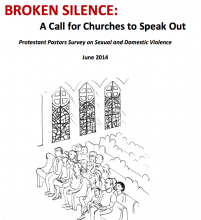
I thought at first that it was a fictional scene, conflating in one example some of the problems those of us in Christianity face when confronted with issues of domestic violence. The scene was set up as a call to rethink how we articulate our theology in areas like sacrifice and forgiveness and commitment and gender roles.
Here’s what I wrote in The Capital Times in Madison, Wis., that was posted on Sunday:
“A woman has been suffering physical abuse at the hands of her husband. She finally summons up the courage to talk to her pastor about it.
“His advice: First, you need to recognize that your suffering is like Jesus’ suffering. Next, you need to forgive like Jesus forgave. Then remember that you made a commitment to marry this man for life. He is the head of your family, so you need to make sure you are doing what he wants so as not to trigger his anger.
“And then an offer: Let me meet with the two of you and help you patch up your marriage.”
I described it as a fictional scenario. And then I heard this from a friend: “that was the response from my minster regarding my first husband 30 years ago ...”
I’d like to think that many pastors these days are a least a bit wiser both theologically and practically in how they deal with someone facing domestic violence. That’s reflected in a groundbreaking survey released last week by Sojourners at The Summit: World Change Through Faith & Justice.
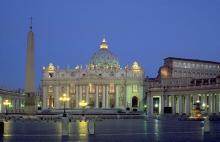
The Vatican could face a wave of new sexual abuse claims dating back decades if a United Nations inquiry finds that the Roman Catholic Church has violated an international treaty against torture and inhuman treatment.
“For too long, sexual violence and acts of rape by the Catholic Church have been minimized,” said Katherine Gallagher, senior staff attorney at the New York-based CCR, after the U.N. panel that enforces the torture convention held hearings in Geneva.
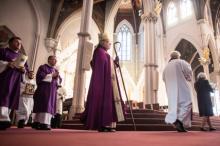
An Irish woman who was a victim of sexual abuse as a child is among eight members of a special commission appointed by Pope Francis on Saturday to start the long and arduous process of confronting the church’s chronic sexual abuse problems.
The creation of the commission is one of the strongest steps Francis has taken to confront the problem that has severely stained the church’s reputation and cost it billions in court settlements and legal fees. The pontiff has called the issue of sexual abuse “the shame of the church” and vowed to take strong steps to confront the issue.
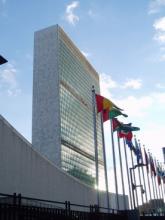
A United Nations panel on Wednesday blasted the Vatican for protecting itself rather than victims of sexual abuse, and it called on the Holy See to create what it called an “independent mechanism” to investigate new charges of abuse.
The 16-page report from the Committee on the Rights of the Child accused the Vatican of “systematically” adopting policies that allowed priests to rape and molest thousands of young people over a span of decades. It also calls on the church to remove known or suspected abusers from its ranks immediately.
“The Committee is gravely concerned that the Holy See has not acknowledged the extent of the crimes committed, has not taken the necessary measures to address cases of child sexual abuse and to protect children, and has adopted policies and practices which have led to the continuation of the abuse by and the impunity of the perpetrators,” the report said.
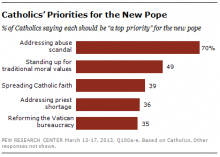
Pope Francis is creating a special commission to deal with the clergy sexual abuse crisis on a global scale, a step that comes amid growing criticism that Francis had not given sufficient attention to the scandal.
Boston Cardinal Sean O’Malley made the announcement on Thursday in the Vatican where he was meeting this week with Francis and the other members of the so-called “Gang of Eight” cardinals that the pope chose to help him reform the Roman Curia.
O’Malley, who is the U.S. bishop with perhaps the most credibility on the abuse issue, listed a range of programmatic ideas for the commission, whose members are expected to include lay people, mental health professionals, and other experts in the field as well as leading churchmen.
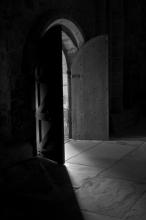
More than 1,200 people have signed an online petition decrying the “silence” and “inattention” of evangelical leaders to sexual abuse in their churches.
The statement was prompted by recent child abuse allegations against Sovereign Grace Ministries, an umbrella group of 80 Reformed evangelical churches based in Louisville, Ky.
“Recent allegations of sexual abuse and cover-up within a well known international ministry and subsequent public statements by several evangelical leaders have angered and distressed many, both inside and outside of the Church,” reads the three-page statement spearheaded by GRACE (Godly Response to Abuse in the Christian Environment).
“These events expose the troubling reality that, far too often, the Church’s instincts are no different than from those of many other institutions, responding to such allegations by moving to protect her structures rather than her children.”

Wearing a bright orange prison jumpsuit, the priest at the center of the furor in the Archdiocese in Newark made his first court appearance on Tuesday on charges he violated a court-sanctioned lifetime ban on working with children.
The Rev. Michael Fugee, 52, stood for the brief hearing as Bergen County Assistant Prosecutor Demetra Maurice read the seven counts against him.
Maurice is the same prosecutor who authored the 2007 agreement with Fugee and the Archdiocese of Newark that bars him from working with children in any capacity as long as he remains a priest.
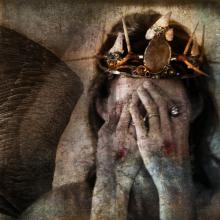
I first became aware of the realities of sexual abuse in the church at the tender age of five. I happened to look at the television screen and witnessed police officers escorting my hand-cuffed youth minister in front of a crowd of reporters screaming questions. The words “YOUTH PASTOR ABUSED CHILDREN” flashed across the television screen.
I was confused and scared. My family comforted and assured me that the pastor had only “hurt” teenage boys and that I was safe. The church hired a new minister and, on the surface, life seemed to resume to normal for our congregation. But as a child I had no idea of the effects of the abuse and its aftermath had on the survivors, their families, and our church community. Many families soon experienced disintegrating marriages, friendships were broken, and faith was lost. One survivor’s family had their home repeatedly vandalized and were forced to move hundreds of miles from our town to escape fellow believers who grew angry with them for filing a lawsuit against the perpetrator.
Church leaders shunned media attention and feared “airing dirty laundry” in public, encouraging members to keep the experience a secret for the sake of the boys and church. As a child, and then a teenager, growing up in an otherwise loving, connected church, I never remember hearing church leaders address this aspect of our shared history in the open. To some of the survivors and the broken-hearted, the silence on this topic was welcome; to others it was deafening. While secrecy was the rule, the legacy of the abuse was real and active in the community. Rather than being cared for with dignity and love, the survivors and their families felt that they were a shameful secret to be whispered about and hidden. I learned as an adult that I was intimately connected with some of the survivors but never knew about their silent pain. I had no idea that I was a participant in a culture of silence and shame that often surrounds sexual abuse and is especially pronounced when boys are abused by men in the church.
A group of priests and nuns, some of whom were assaulted as children, has quietly been gathering to publically urge the pope and American bishops to "clean house" on sexual abuse in the church.
Many members in the group, though vocal on sexual abuse cases in the past, did not know eachother until last year, when a laywoman brought them together for as a "confidential support group."
The New York Times reports:
Their aim, they say, is to support both victims and fellow whistle-blowers, and identify shortcomings in church policies. They hope to help not just minors, but also adults who fall prey to clergy who exploit their power for sex. They say that their motivation is to make the church better and safer, and to show the world that there are good priests and nuns in the church.
“We’ve dedicated our lives to the church,” the Rev. John Bambrick, a priest in the Diocese of Trenton, said at a meeting of the group last week in New York. “Having sex offenders in ministry is damaging to our ministry.”&nbsminp;
Read more here.
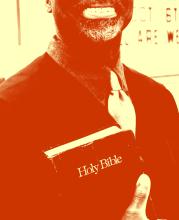
Most of us are too familiar with this story: an Upper Midwestern Baptist minister claims that “God made Christianity to have a masculine feel [and] ordained for the church a masculine ministry.” Or a Reformed Christian pastor mocks the appointment of the first female head of the Episcopal Church, comparing her to a “fluffy baby bunny rabbit.” Or a Southern Baptist megachurch pastor in California says physical abuse by one’s spouse is not a reason for divorce. Or numerous young evangelical ministers brag about their hot wives in tight leather pants.
Fewer of us are familiar with this story: Tamar is raped by her half-brother Amnon. Tamar protests her brother’s advances, citing the social code of Israel, his reputation, and her shame, to no avail. Their brother Absalom commands her to keep quiet, and their father, the great King David, turns a blind eye.
What do these contemporary statements above, delivered into cultural megaphones with conviction and certainty, have to do with the Old Testament rape and silencing of Tamar? The difficult answer is, quite a lot. The narrative dominance of these stories rests on power and control, which — whether intentional or not — speaks volumes about whom the church serves and what the church values.

Who is missing from the slew of headlines this week on kidnappings, gender-based violence, and victims' paths to healing? The perpetrators themselves.
Which is why this TEDx video is a must-see.
“Gender violence issues have been seen as 'women’s issues' that some good men help out with,” Jackson Katz, PhD, Founder and Director at MVP Strategies, says in the video. “I have a problem with that frame, and I don’t accept it. It gives men an excuse to not pay attention."
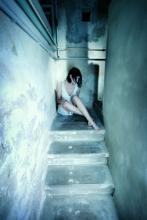
Several years ago, Amee Paparella was an eager student at a state university in Ohio. A conservative Christian, she quickly signed up to join the campus ministry. What she found in the group surprised her.
“It was so misogynistic,” Paparella recalled. “My leaders perpetuated this hyper-masculinized idea of God as physically a man.”
Over the years, Paparella wrestled to reconcile this image of God with her own faith, often to the discomfort of her peers. But an incident of sexual abuse within the ministry proved the breaking point. When it was discovered that a young man had been abusing his female partner, also in the group, the campus minister and student leaders responded by encouraging the young woman to stand by her man and to pray with the other students for his healing.

Amid calls for a Vatican investigation, Newark Archbishop John J. Myers is facing fierce criticism for his handling of a priest who attended youth retreats and heard confessions from minors in defiance of a court-ordered lifetime ban on ministry to children.
At St. Mary’s Catholic Church in Colts Neck, where the Rev. Michael Fugee had been spending time with a youth group, angry parishioners said they were never told about Fugee’s background, and they questioned Myers’ defense of the priest, the subject of a lengthy story in The Star-Ledger.
“It’s complete craziness that the church can let this happen,” said John Santulli, 38, a father of two at St. Mary’s. “I’m a softball coach, and I need a background check just to get on the field. Every single person I spoke to today said, ‘Oh my God. I didn’t know about this.’ It’s incomprehensible.”

WHEN POPE BENEDICT XVI unexpectedly announced his resignation in mid-February, many expressed admiration for the decision's honesty and humility, and much speculation followed about the reasons for it—and the consequences it would have.
As transition takes shape in the Vatican, Catholics around the world are commemorating the 50th anniversary of the Second Vatican Council, which took place from 1962 to 1965 and which redefined the church's relationship to the world. Vatican II's final document said: "This council can provide no more eloquent proof of its solidarity with, as well as its respect and love for the entire human family with which it is bound up, than by engaging with it in conversation about these various problems," referring in part to the "profound and rapid changes ... spreading by degrees around the whole world." Half a century ago, few could have predicted the dramatic changes that were to follow in science, technology, global integration, and social mores.
Catholics know that in the last 50 years the institutional church has been at the forefront of calls for a more just, compassionate, and sustainable world. Catholic social and ecological teaching is well developed and clearly articulated. The church has offered analysis and challenging proposals for financial reform, arms control, care for creation, and multilateral political structures of accountability in response to globalization.
We want the new pope to continue, deepen, and make much more visible—including to Catholics around the world—the church's prophetic work for social and economic justice, for environmental sustainability, and for wise, just, and inclusive peace. We want the new pope to engage the Islamic world, respectfully cooperating in response to orchestrated fear, enemy-making, and all forms of religious extremism. We want him to promote cultures of peace in a world that is increasingly violent. We want him to be open to new cosmological insights that are transforming human consciousness; shifting our understanding of earth community and of our planet's place in the vast, expanding universe; and maturing our reflections on the One who is Creator, Incarnation, and Spirit of love.
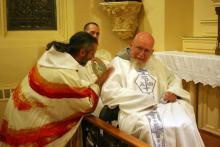
The Rev. Benedict Groeschel, a well-known Catholic author and television personality, has given up his longtime spot on the conservative cable network EWTN following comments in which he appeared to defend clergy who abuse children while blaming some victims.
“Father Benedict has led a life of tremendous compassion and service to others and his spiritual insights have been a great gift to the EWTN family for many years. We are profoundly grateful to him and assure him of our prayers,” Michael P. Warsaw, head of EWTN Global Catholic Network said in announcing Groeschel’s decision to step down.
In his statement on Monday Warsaw also asked EWTN viewers “to pray for all those who have been affected by this painful situation and in particular those who have been victims of sexual abuse.”
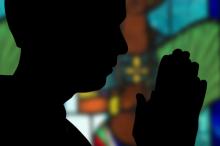
Amid continuing headlines about cover-ups of child abuse in the Catholic Church, an oversight board of lay Catholics on June 13 warned the nation’s bishops that they must follow their own policies against abuse more rigorously if they hope to restore their fragile credibility.
“If there is anything that needs to be disclosed in a diocese, it needs to be disclosed now,” Al J. Notzon III, head of the bishops’ National Review Board, told some 200 prelates gathered in Atlanta for their annual spring meeting. “No one can no longer claim they didn’t know.”
The meeting of the U.S. Conference of Catholic Bishops comes 10 years after the hierarchy met in Dallas and passed a series of reforms to respond to a siege of bad publicity about sex abuse by priests. It also comes as a jury in Philadelphia weighs the fate of a high-ranking priest who's facing criminal charges of concealing abuse by clerics, and as a bishop from Missouri awaits trial on charges that he failed to report a suspected child molester to authorities.
VATICAN CITY — Ten years after the clergy sexual abuse scandal erupted in the United States, Catholic bishops from all over the world will meet next week at a Vatican summit aimed at preventing abuse and protecting children.
The conference, "Towards Healing and Renewal," will be held on Feb. 6-9 and is organized by the Jesuit-run Gregorian University in Rome.
The Vatican's top spokesman, the Rev. Federico Lombardi, told reporters on Friday (Feb. 3) that the summit enjoys the "full support and participation" of the Vatican's highest offices, but Pope Benedict XVI is not expected to attend.
Monsignor Charles Scicluna, the Vatican's chief abuse prosecutor, said the protection of children must become "a permanent principle and concern" in every decision of the church.
"There cannot be a distinction between the good of the church and the protection of youth," he said Friday.

In Mathew 25, he allows no excuses, personal or institutional.
“As you have done it to the least of these, you have done it to me,” Jesus says without qualification. Apply that text to this terrible exploitation at Penn State and it certainly speaks explicitly to the most vulnerable children who have been so horribly abused there.
As it was done to them, it was done to Christ himself, the very Son of God. This famous text is one of the few passages of judgment in the New Testament.
Judgment is now needed at Penn State and beyond about how we continue to allow wealth, power, institutional protections, and cultural complicity to aid, abet, and enable the evil abuse of our most vulnerable children.